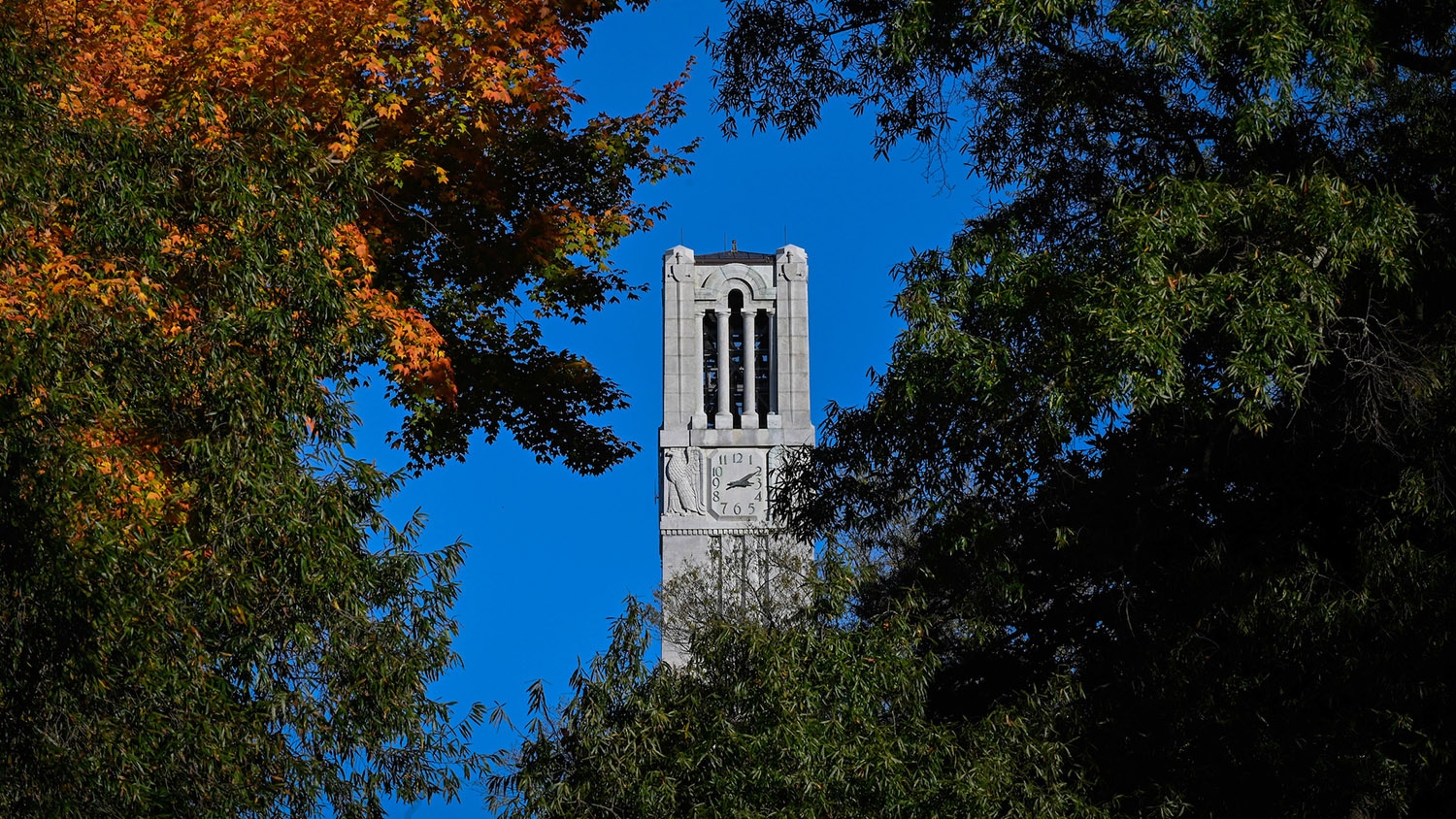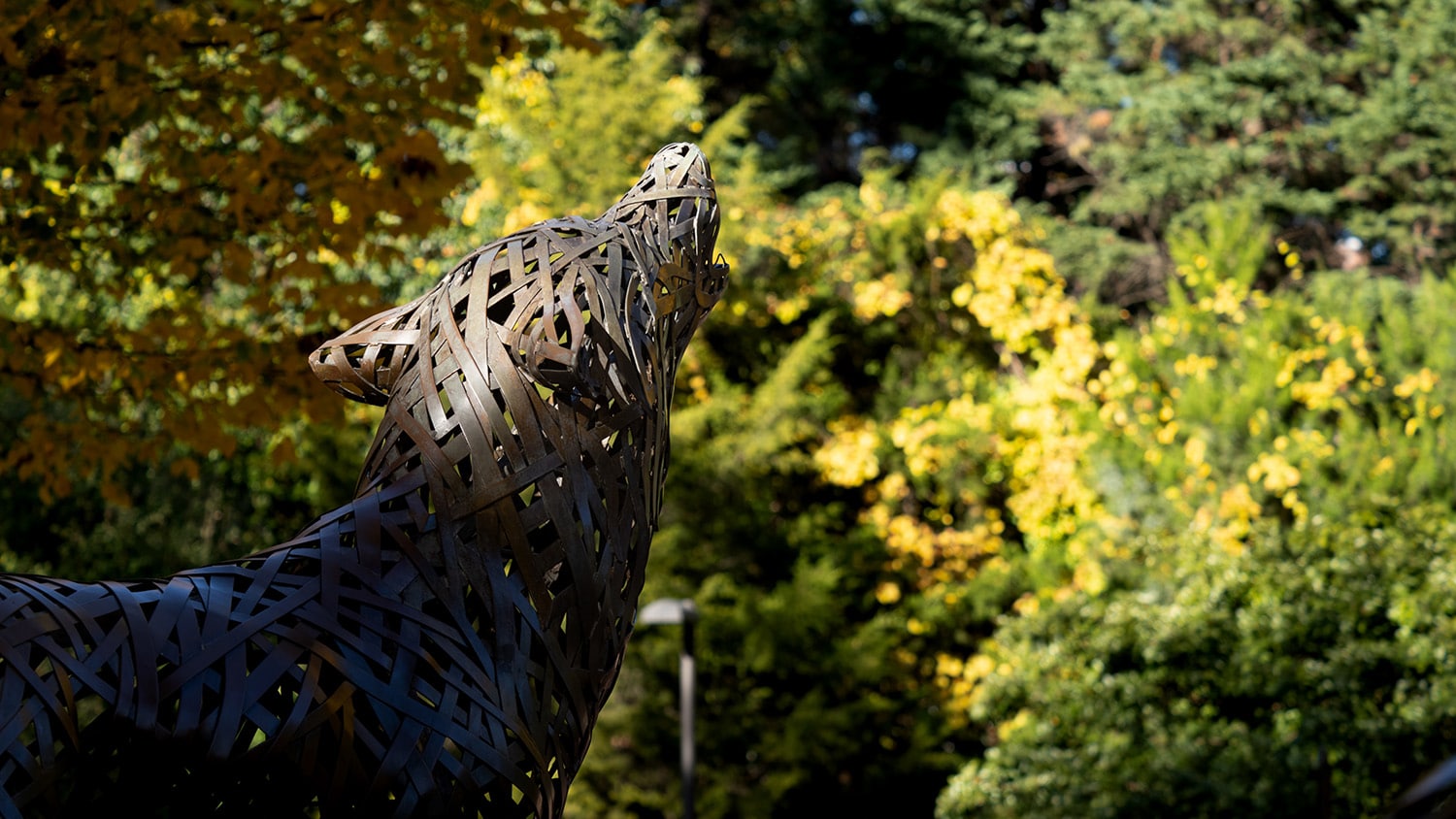Six faculty members have received the university’s top award for research and mentorship this year. The Outstanding Research Award honors those who show excellence in the creation of new knowledge, concepts, methodologies or understandings; who commit to mentoring their fellow NC State faculty; and who serve the NC State research community.
These six Outstanding Research Award winners, as well as four previous award winners, will be inducted into the university’s Research Leadership Academy, which consists of excellent faculty members in diverse fields who enhance NC State’s research culture.
This year’s Outstanding Research Award winners are:
- George Kennedy, a William Neal Reynolds Distinguished Professor of Agriculture in the College of Agriculture and Life Sciences. Kennedy’s years of researching the ecology and life systems of certain invertebrates have added to the knowledge base of integrated pest management and in turn significantly decreased global reliance on pesticides. He mentors junior faculty not just on their research but also on their work-life balance. Richard Linton, dean of the College of Agriculture and Life Sciences, said, “Throughout his career, he has embraced teaching excellence, sought and applied intellectual discovery, mentored the next generation of scientists, and engaged in international capacity building for the betterment of NC State and society overall.”
- James Lester, a Distinguished University Professor of Computer Science in the College of Engineering. Lester is the founding director of the Center for Educational Informatics, which uses artificial intelligence in student settings to advance education and training. He also led the multi-institutional proposal team that received the National Science Foundation’s AI Institute. Associate Vice Chancellor for Research Jon Horowitz said, “James is a dynamic, prolific researcher, educator and mentor throughout his academic career, and his contributions to the field have been deservedly acknowledged by his peers.”
- W. Jason Miller, an English professor in the College of Humanities and Social Sciences. Miller discovered an earlier version of Martin Luther King Jr.’s “I Have a Dream” speech, before it was delivered in Washington in 1963. This version was given in Rocky Mount, North Carolina, and it played a vital role in Miller’s work, King’s First Dream Project. This project preserves materials that could have otherwise been forgotten and discarded. Deanna Dannels, dean of the College of Humanities and Social Sciences, said, “Dr. Miller is a preeminent scholar of the literature and rhetoric of the civil rights movement in the United States, and has made remarkable contributions to the field, to his department, to our university, and to the broader community in his role as a highly visible public scholar.”
- John Muth, a professor of computer and electrical engineering in the College of Engineering. Muth helped establish PowerAmerica — a $140 million Department of Energy award — to NC State. He also co-founded the Advanced Self-Powered Systems of Integrated Sensors and Technologies (ASSIST) Center. He mentors undergraduates, graduate students, community college students and high-schoolers. College of Engineering Dean Louis A. Martin-Vega said, “He is a recognized innovator working with small companies and large industries in a variety of contexts from start-ups here in the Research Triangle to multimillion-dollar collaborations in the PowerAmerica Institute.”
- Sylvia Nassar, a professor and program coordinator of counselor education in the College of Education. Nassar helped develop the 2016 Multicultural and Social Justice Counseling Competencies, endorsed by the Association for Multicultural Counseling and Development Executive Council and the American Counseling Association Governing Council. She has worked as a graduate program coordinator in NC State’s counselor education program for more than 10 years. College of Education Dean Paola Sztajn said, “Dr. Nassar is a respected scholar who has distinguished herself locally, nationally and internationally as an expert in the field of counselor education and career development with a focus on multiculturalism and social justice.”
- Afsaneh Rabiei, professor of mechanical and aerospace engineering in the College of Engineering. Rabiei has drawn more than $7 million in federal extramural awards, and she has created or co-created 10 United States patents during her time at NC State. She has mentored nearly 30 undergraduate students and has focused on mentoring women and minority students. Associate Vice Chancellor for Research Jon Horowitz said, “Given her seemingly boundless energy and generosity with her time, Afsaneh is a highly sought after participant on many national and international boards and committees, and her impact has been profound.”
The following faculty members received the award in previous years and will also be inducted into the Research Leadership Academy:
- Jan Genzer, S. Frank & Doris Culberson Distinguished Professor, College of Engineering
- Saad Khan, INVISTA Professor, College of Engineering
- Gail McLaughlin, Distinguished University Professor, College of Sciences
- Orlin Velev, S. Frank and Doris Culberson Distinguished Professor, College of Engineering
“Congratulations to the six exceptional faculty members receiving the Alumni Association Outstanding Research Award this year,” said Sharon Joines, chairwoman of the Research Leadership Academy. “The pool of nominees was exceptional — representing the breadth and depth of scholarly work at NC State. In addition to the six awardees, four previous AAORA recipients have been accepted into the RLA this year. I look forward to working with them as lifetime members of the RLA.”
The Outstanding Research Award is given annually by the Office of Research and Innovation and the Alumni Association. The Research Leadership Academy was founded in 2016.
This post was originally published in Office of Research and Innovation.
- Categories:



